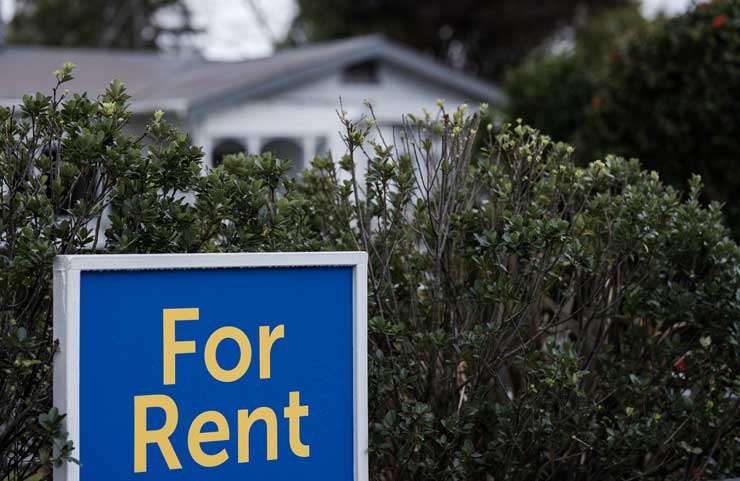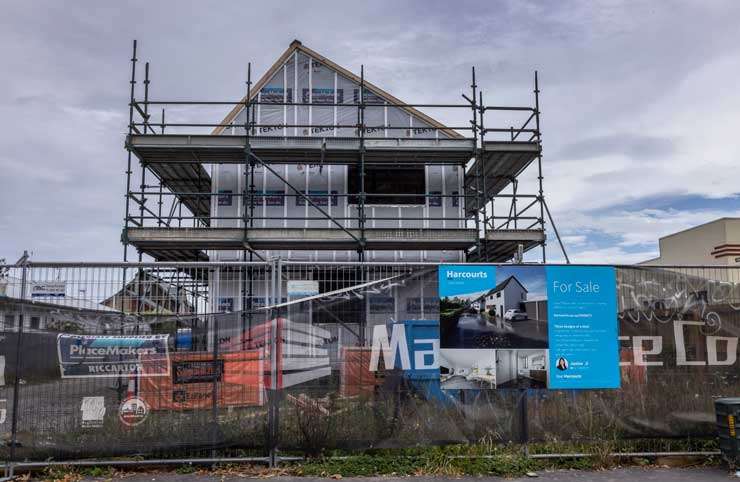Banks are forecasting house price falls of up to 10 per cent in the year ahead, but not all homeowners will be affected equally.
James Wilson, head of valuation at OneRoof's data partner, Valocity, says mum and dad investors selling up because of tight conditions could be hit harder than owner-occupiers, and there might be some submarkets and locations that don't drop in price.
"It's never as simple as saying the entire market will move down by X percent - there's always lots of plots and subplots that are going on under the surface that have a bigger impact on individual groups than their overall market."
Some property types are already showing signs of price pressure compared to others, Wilson says.
Start your property search
One of those is the central Auckland apartment market which is showing a softening trend, though Wilson points out not every apartment is impacted.
"In particular, more of the investor-type stock, so more of your smaller, think shoebox style, apartments."
One of the reasons is users of those apartments are international students who have not been here.
Other property types suffering include development sites, such as a site with an existing house where a developer may have been going to make the most of Auckland's Unitary Plan to build townhouses but who has now decided against that because of increasing costs.
"They would rather sell and recoup what they can before they get stuck with a project they don't want to proceed on."
Both those property types are investor/developer stock and not traditional owner-occupier homes, Wilson says.

Valocity head of valuation James Wilson says softening property values shouldn't be a worry to homeowners. Photo / Fiona Goodall
Owner occupiers planning to stay in their home, who didn't buy for short-term capital growth, won't be much impacted by house price falls.
"At the moment there's no real need for you to be too concerned because values softening doesn't really mean anything to you in the short term.
"The interest rates obviously are rising but we're not seeing them rise yet to the point where they are correlating to downward pressure on values."
And while interest rates have risen, they are still historically low.
"They are not yet high enough for people to have to go 'I have to sell my house quickly because I'm under massive pressure here.'"
New Zealanders usually put paying the mortgage at the top of their priority list to the point of compromising on other expenses, Wilson says, which has meant New Zealand has not seen the same dips in the market other parts of the world have seen, such as during the Global Financial Crisis of 2008.
"The median sales price really only dipped just shy of 5 per cent during that time, and that wasn't across the board.
“You didn't have that situation we were seeing abroad where values plummeted by in some cases more than 50 per cent and in some cases more again."
While there is the risk of a real recession ahead, value levels are not expected to plummet overnight or across the board, Wilson says.

A rental sign in Auckland. Investors who bought at market peak could come under pressure this year. Photo / Ted Baghurst
Even first home buyers, who may be concerned they are particularly exposed to a downturn, should not be impacted if they have bought the property to live in.
But investors, and particularly those who bought later in the cycle who paid big money to enter the market with the idea of not keeping the property that long, could lose their capital growth or go backwards.
They might have had to spend to get the property up to the healthy homes standards and also have lost the ability to deduct some interest from the investment because of policy changes.
"You take away the value growth and suddenly they might be feeling very pressured to sell before they take any more hits on their value and they might discount their price to sell out more quickly."
Most of those types of heavily-indebted investors are likely to be "mum and dad" investors who own two to five properties.
The wider Waikato could be impacted as this region has seen the most investor activity over the last two to three years.
And Rotorua's housing market performance has been softer than most which Wilson thinks could also be due to a larger investor activity over the last couple of years.
That doesn't mean the whole of Rotorua is in trouble, he says, just that there is some softening across some suburbs.

New builds in Christchurch, where the average property value has risen 30% in the last year. Photo / Peter Meecham
Wilson also says some property types might not show any sign of values softening, such as new builds.
"There are a whole lot of policy settings which promote new builds being popular and that's among both investors and first homebuyers where they, for example, can have a lower deposit requirement.
"Investors can still deduct interest from them and there's a difference in Brightline test applications, so there's a whole lot of reasons that promote new builds as an asset type that numerous groups might want to look at purchasing and that's likely to mean the price points of some of those new builds remains protected because the demand is so strong for them."
Locations where there are high amounts of new build activity, such as Christchurch and parts of Tauranga, may see pockets that don't see the same softening, at least initially, he says.
Other areas that could buck the trend could be growth corridors in Auckland, such as the southern fringe of the city which has seen a lot of growth and new builds.
"If demand remains strong it may promote growth of value in those locations - but if we get a wider economic shock everything will slow down."
Kelvin Davidson, CoreLogic's chief property economist, says it's plausible house prices could fall 10 per cent which would be on a par with the GFC, which saw the biggest dip to date in records that go back to the late 1980s.
"However, for now we reckon the falls might be smaller, given low unemployment, borrower serviceability already tested higher than market interest rates, and just the speculative possibility that if sharp falls started to occur the Reserve Bank could possibly ease LVRs."

CoreLogic chief economist Kelvin Davidson: “Your house may lose a bit of value but you might get an absolute bargain on the next property." Photo / Peter Meecham
For buyers there would be potential to save money but some might want to act sooner rather than later, Davidson says.
"The market may have already troughed by the time they actually agree a deal and interest rates may be higher by then, too."
Some sellers might need to drop asking prices but few would be under forced selling pressure so may just choose to wait longer or even pull a listing altogether.
"However, it's also worth nothing that owner-occupiers generally buy and sell in the same market – yes, your house may lose a bit of value but you might get an absolute bargain on the next property."
Sharon Zollner, chief economist for the ANZ, which is forecasting a 10 per cent fall, says the current situation is different to the GFC with negative supply shocks at play which both hurt growth and cause inflation.
"When you've got a supply shock you've got prices going up and growth going down and one says raise rates and one says cut rates - you can't do both."
In the hierarchy of targets, cutting inflation is at the top, she says.
Mike Jones, a senior economist with the ASB, says the bank is forecasting a -6 per cent drop nationally in house prices by the end of the year but says there are variations and that Wellington has slowed faster than the regions.
On the other hand, nobody told the Canterbury housing market that the boom is over, he says.
"It seems to be continuing – it's sort of moving to a different beat down in Canterbury.
"I think Christchurch and Canterbury will probably outperform the average and Auckland and Wellington will perhaps slightly underperform and the rest sort of in between, and that just reflects different affordability constraints in the regions.
In Auckland, house prices are getting up to 10 or 11 times incomes which is putting a natural cap on how much further prices could go up.
Some property types that could fare a little better are townhouses and lower priced homes as there is still demand for affordable housing from first home buyers.


















































































